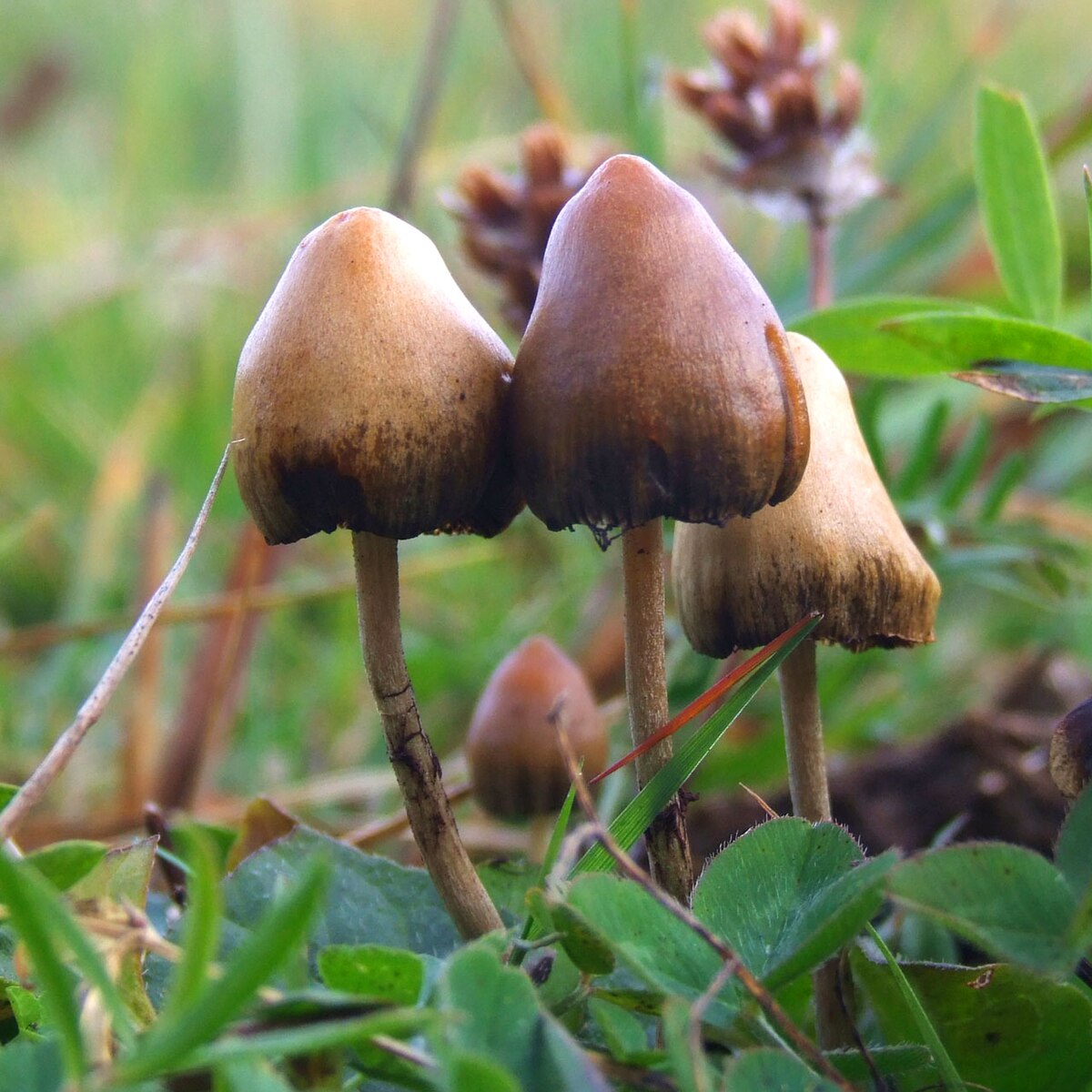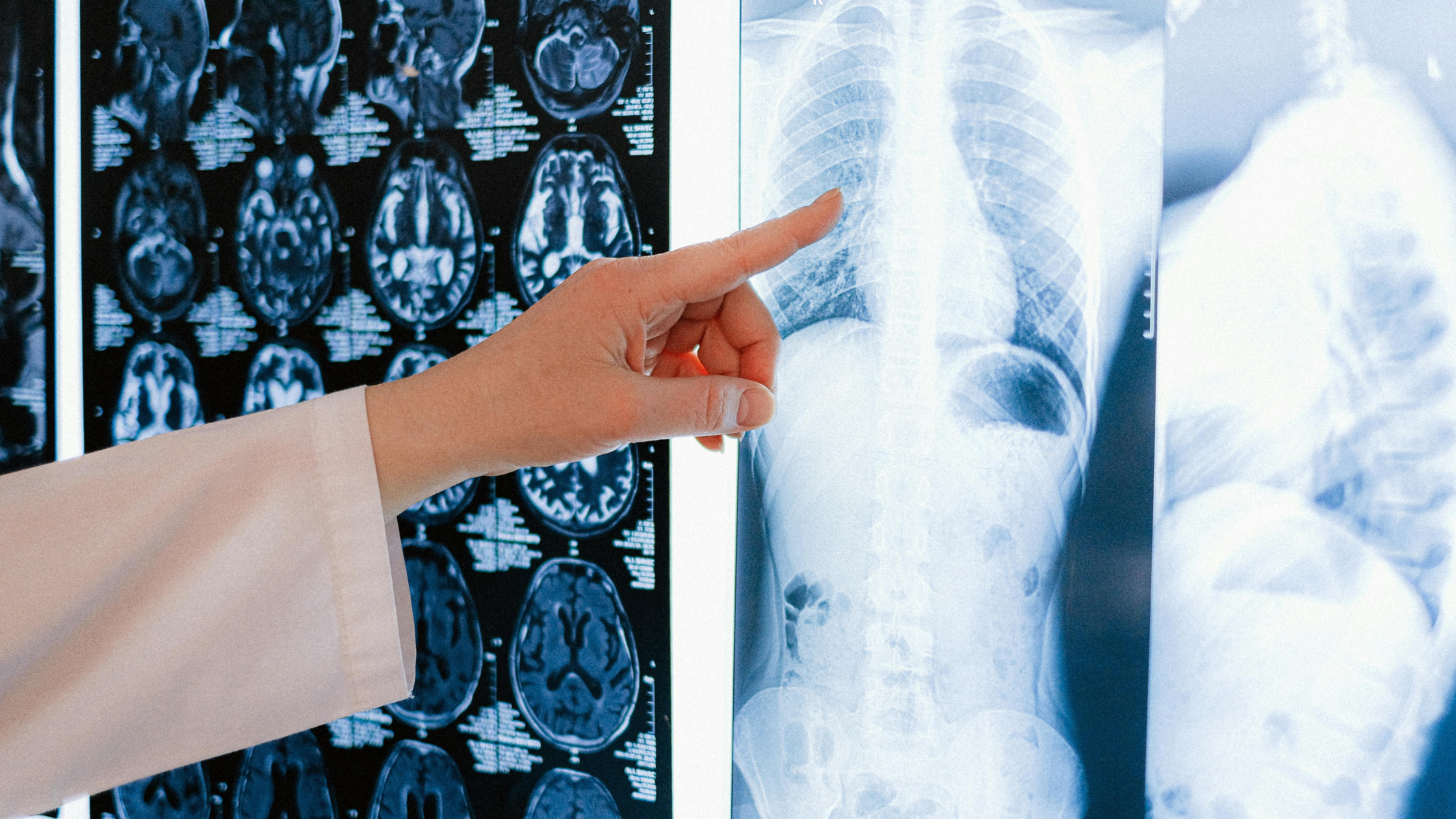What a Psilocybin Study Reveals About Longevity
THE UPSHOT
A Nature study found that psilocin, the active compound formed when psilocybin is ingested, delayed cellular aging by up to 57% in lab-grown human cells. It preserved telomere length, reduced oxidative stress, and downregulated aging markers like p16 and p21.
Even more compelling? Psilocybin may help reverse physiological wear caused by depression, which has been linked to accelerated aging.
While the study was conducted in cells, not humans, it introduces the possibility that psychedelics are a potential longevity therapeutic. In the meantime, practices like meditation, whole-food nourishment, breathwork, and Reiki offer ways to tap into similar regenerative biology.
Aging begins at the cellular level. Long before wrinkles appear or memory wanes, your cells are making critical decisions: to divide, to repair, or to stop replicating altogether. That final option, to enter a state of permanent rest called senescence, is part of the body’s natural aging program. But what if we could slow it down?
A groundbreaking study recently published in Nature suggests that psilocin, the active metabolite of psilocybin (the compound found in psychedelic mushrooms), may have the ability to delay cellular aging. And the implications for human longevity, healthspan, and even depression are significant.
What Is Cellular Senescence?
Cellular senescence is a stress response in which damaged or aging cells permanently stop dividing. This can serve as a protective mechanism, preventing the spread of mutations or tumor growth, but it also contributes to tissue dysfunction and chronic inflammation as senescent cells accumulate. These so-called “zombie cells” can’t perform their normal duties, but they don’t die either. Instead, they linger, secreting inflammatory molecules that disrupt nearby healthy cells.
Senescence is intimately linked to telomere length, the protective caps at the ends of chromosomes that shorten with each cell division. When telomeres become critically short, cells often enter senescence. Shorter telomeres are associated with increased risk of chronic disease, decreased healthspan, and age-related decline, both physical and cognitive.
The Psilocybin Study: A Closer Look
In the Nature study (1), researchers took a closer look at psilocin’s potential to influence how our cells age, using human fetal lung fibroblasts and adult human skin cells–two validated in vitro models of replicative senescence. These cells were “serially passaged” (repeatedly allowed to divide) in the presence of psilocin or a control solution.
The results are truly eye-opening.
- At 10 μM, psilocin extended the cellular lifespan by 29%, while a 100 μM dose led to a 57% increase in cellular lifespan.
- Cells treated with psilocin showed delayed onset of senescence, reduced β-galactosidase activity (a biomarker of aging), and lower expression of senescence-related proteins like p16 and p21.
- Markers of cellular youth, such as PCNA (proliferation) and pRB (DNA replication), were elevated in treated cells.
- Importantly, telomere length was preserved in psilocin-treated cells, compared to significant shortening in the control group.
- Psilocin also reduced oxidative stress, boosted SIRT1 (a longevity-associated protein), and decreased Nox4 (a key regulator of cellular oxidants), while increasing Nrf2, a transcription factor known for activating antioxidant responses.
Translation? Psilocin helped keep cells younger for longer! It supported telomere integrity, reduced cellular stress, and delayed the hallmarks of aging.
Depression, Aging, and Psilocybin
There’s a mental health side to this story. Psilocybin has already shown remarkable potential in mental health, particularly in treating treatment-resistant depression. And it’s interesting to note that this ties in closely with aging.
Depression, especially chronic depression, has deep physiological effects. It has been linked to increased systemic inflammation, oxidative stress, and accelerated biological aging –read telomere shortening and higher levels of senescent cells. Some researchers now consider depression a form of premature cellular aging (2).
By supporting cellular resilience and telomere preservation, psilocybin may be doing more than improving mood—it may also be slowing down biological wear and tear.
The Psychedelics-Longevity Connection
This study is still early-stage, conducted in vitro rather than in living organisms. But the findings add a compelling new angle to the growing conversation around psychedelics and health.
We’ve known that compounds like psilocybin can induce profound shifts in consciousness, unlock repressed trauma, and help recalibrate the brain’s default mode network (3). Now we’re learning that it might also help the body stay younger on a cellular level by preserving telomeres, enhancing mitochondrial function, and delaying the onset of cellular senescence.
In the emerging world of longevity science, where molecules like NAD+, sirtuins, and senolytics are driving innovation, psilocybin may soon have a place at the table, not only as a tool for neuroplasticity and mental health, but as a compound that protects the body from the inside out.
We are just beginning to scratch the surface of how psychedelics might intersect with the biology of aging. The research is still in its infancy, but the early data is promising. Psilocybin (and its metabolite psilocin) may one day serve not only as a medicine for the mind but as a longevity therapeutic, helping us extend both the years and the quality of our lives.
As always, more studies are needed, especially in humans, to confirm these effects. But the possibility that a naturally occurring compound could delay cellular senescence, preserve telomeres, and reduce oxidative damage offers a glimpse of what’s possible in the future of cellular aging and health!
Cellular Self-Care
While psilocybin itself isn’t legally or easily accessible to most people, and this study was conducted in cells, not humans, it offers an insight that I’ve long believed in: our emotional, spiritual, and biochemical states are interconnected, and tending to the mind can directly impact how our cells age.
Here are a few aligned, actionable ways to apply this science to your daily life, no psychedelics required:
- Tend to Your Stress Response, Daily
Psilocin reduced oxidative stress and inflammation in cells. You can achieve a similar protective effect through practices that soothe the nervous system and support mitochondrial health. Breathwork, cold exposure, sunlight, intentional movement, and Reiki all help regulate the body’s response to stress and reduce the oxidative burden that contributes to cellular aging. - Embrace Neuroplastic Practices
The longevity benefits observed with psilocin may be tied to its ability to influence gene expression, cellular signaling, and neuroplasticity. Practices like meditation, mantra, sound healing, and even learning new things light up many of the same regenerative pathways (4). These rituals aren’t just for the soul, they’re acts of cellular self-care. - Protect Your Telomeres with Whole Foods and Ritual
Plant-based, antioxidant-rich foods (like blueberries, turmeric, green tea, and leafy greens) are known to help reduce oxidative stress and support telomere integrity (5). But nourishment isn’t just about nutrients, it’s also about intention. Eating slowly, blessing your food, and grounding yourself while you nourish your body amplifies the regenerative effects. - Cultivate Connection and Purpose
One of the most profound effects of psilocybin reported in human studies is a renewed sense of awe, meaning, and connection. You can access that same cellular reset through deep listening, community, journaling, time in nature, and aligned service. Longevity isn’t just about living longer, it’s about living from the heart. - Support Mitochondrial Health
Many of psilocin’s protective effects in cells were linked to reduced oxidative stress and increased antioxidant activity. You can support your own mitochondria with practices like red light therapy, gentle fasting, grounding, and even strategic supplementation (think NAD+ precursors, CoQ10, and adaptogens like rhodiola or ashwagandha, if aligned with your needs). Maximize My Mito and Ultra Ubiquitol are great for boosting mitochondrial support.
This research reminds us that healing isn’t linear and aging isn’t inevitable. By nourishing our cells with intention, from what we eat to how we think, we can extend not just our lifespan, but our healthspan. Psilocybin may one day become a tool in the longevity toolkit, but the most potent medicine is already within you: your breath, your thoughts, your rituals, your connection.
This is the path where science meets soul—where molecules matter, but meaning matters more.
Xo – Serena
FAQs
Q: What’s the difference between psilocybin and psilocin?
A. Psilocybin is the natural compound found in psychedelic mushrooms. Once ingested, your body converts it into psilocin, which is the active form that interacts with serotonin receptors and influences both brain activity and cellular signaling. In the study, researchers used psilocin directly to better observe its effects on human cells in culture.
Q: Why were skin and lung cells used in this study?
A. Researchers often use lung and skin fibroblasts in aging studies because they are easy to grow and monitor in the lab. These cells replicate many times and show consistent signs of aging, including changes in telomere length and senescence markers, which makes them a reliable model for testing anti-aging compounds.
Q: Could microdosing psilocybin have similar effects on aging?
A. While microdosing is gaining popularity for cognitive and emotional support, there is currently no published research confirming that low-dose psilocybin affects telomere length or cellular aging. It’s an open question whether these subtle doses can influence the same pathways seen in the study using higher concentrations of psilocin.
Q: How does psilocybin compare to other longevity practices like fasting or NAD+ boosters?
A. Most longevity strategies, like intermittent fasting or taking NAD+ precursors, work by activating metabolic and repair pathways inside cells. Psychedelics appear to support cellular health through a different route, possibly by reducing inflammation, improving neuroplasticity, and helping to resolve trauma or chronic stress, which are often overlooked drivers of biological aging.
Q: Is it safe to delay cellular senescence? Doesn’t senescence help prevent cancer?
A. Yes, senescence is a natural protective mechanism that stops damaged cells from dividing. This is one reason why the study results are so compelling. Psilocin-treated cells eventually did enter senescence, but more slowly and with fewer signs of stress or damage. Researchers saw no indication of abnormal or cancer-like growth, which suggests a healthy extension of the cells’ productive lifespan rather than unchecked replication.
CITATIONS
- Kato, K., Kleinhenz, J.M., Shin, YJ. et al. Psilocybin treatment extends cellular lifespan and improves survival of aged mice. npj Aging 11, 55 (2025). https://doi.org/10.1038/s41514-025-00244-x
- Remes O, Mendes JF, Templeton P. Biological, Psychological, and Social Determinants of Depression: A Review of Recent Literature. Brain Sci. 2021 Dec 10;11(12):1633. doi: 10.3390/brainsci11121633. PMID: 34942936; PMCID: PMC8699555.
- Smausz R, Neill J, Gigg J. Neural mechanisms underlying psilocybin’s therapeutic potential – the need for preclinical in vivo electrophysiology. J Psychopharmacol. 2022 Jul;36(7):781-793. doi: 10.1177/02698811221092508. Epub 2022 May 30. PMID: 35638159; PMCID: PMC9247433.
- Flavell SW, Greenberg ME. Signaling mechanisms linking neuronal activity to gene expression and plasticity of the nervous system. Annu Rev Neurosci. 2008;31:563-90. doi: 10.1146/annurev.neuro.31.060407.125631. PMID: 18558867; PMCID: PMC2728073.
- D’Angelo S. Diet and Aging: The Role of Polyphenol-Rich Diets in Slow Down the Shortening of Telomeres: A Review. Antioxidants (Basel). 2023 Dec 7;12(12):2086. doi: 10.3390/antiox12122086. PMID: 38136206; PMCID: PMC10740764.
by





